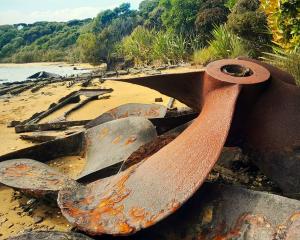On average, seven people a year are killed and 45 seriously injured in crashes involving a passenger or light commercial vehicle towing a trailer (including caravans, as well as boat, horse and garden trailers). David Thomson shares his tips for avoiding becoming a towing statistic, and for completing a towing journey with the minimum of fuss and bother.
Get the right towing vehicle
It's pretty obvious that a 1.3-litre supermini won't comfortably tow a two-tonne trailer and boat combo, but it's still amazing how often one sees an obvious mismatch in size between the vehicle towing and the object under tow.
The Automobile Association has a handy online resource where you can check the recommended towing capabilities of dozens of new and used cars.
Head to www.aa.co.nz/cars/maintenance/towing/towing-weights
Make sure the tow vehicle is in tip-top shape
Hauling a load imposes far more strain on a car's mechanicals and brakes than regular driving, so if the engine has a weak water or turbo intercooler pipe, the gearbox is failing, or the brakes aren't quite right, towing is when you'll find out about it, the expensive and disruptive way.
So, have the towing vehicle checked over by a mechanic before you embark on a serious towing trip.
Warrant and register the trailer or caravan
Completely obvious and self-explanatory this one, but all too often overlooked, or left until you are about to leave.
Sure to take the gloss off a long weekend or holiday break is leaving town half a day late because you only remembered to register or warrant at the last minute or copping a fine for a trailer that is unregistered ($100) and/or unwarranted ($200).
Carry and check the spare wheel
Not the spare for the tow vehicle (but check it too), rather the spare for your trailer or caravan; it's amazing how often towers become stranded simply because they have forgotten the spare wheel, or it is fitted with a tired, cracked old tyre that goes flat as soon as it is required to cope with any weight.
Practise backing before you go
There's nothing more satisfying in towing than smoothly and efficiently reversing a trailer, especially on a slope, into a tight spot.
If you haven't mastered this dark art yet, find a suitable spot, set up an imaginary parking space with a few cardboard boxes, and practise, practise, practise.
And if you do end up struggling in a high-pressure situation (e.g. on a busy boat ramp), swallow your pride and ask for help; there will be no shortage of volunteers happy to demonstrate their superior skill!
Pack with care
You might have a vehicle rated to tow 2500kg, but if you're towing just half that weight, and it is badly distributed relative to the trailer's wheels and towbar, or poorly secured, you could still be in for a dangerous trip.
The general rule is to have as much weight as possible concentrated low and as close to the trailer's axle as possible, but centred slightly forward so there is downward pressure (about 10% of the trailer's weight is ideal) on the towbar itself.
Carry a spare shackle
That same mysterious place in our world that is inhabited by missing odd socks and ballpoint pens must also be home to a large collection of those shackle-and-pin devices that connect the safety chain of a trailer to the towbar.
Carry a spare one (or two) in the glove box, and it is bound to come in handy before too long.
General driving technique
Drive as smoothly as possible, avoiding sudden or heavy braking, and likewise sudden or heavy acceleration.
Remember too that you will need to select a lower gear than usual to ascend hills, and to generate engine braking to assist in controlling speed for descents.
Leave extra room before pulling in after passing, and take a wider than usual line through tighter corners to prevent the trailer clipping the inside of the bend.
Be wary of fishtailing and other dramas
Especially if the load is not properly balanced, a sudden swerve or a crosswind gust can send your trailer into a frightening sideways oscillation, called a fishtail, that is extremely hard to control.
Some upmarket cars and SUVs have a protocol in their stability programming to combat this situation, and experts have various techniques (including gentle acceleration) to bring the situation under control.
For the less experienced, easing off the accelerator while (if it has one) applying the trailer's brake gently, is the best course of action.
Braking hard is best avoided, as it is likely to exacerbate the situation.
Keep a safe following distance
Stopping distances increase when there's the weight of a trailer to slow up too, and a rough rule of thumb is to double the normal safe following distance.
Out on the open road, travelling at the 90kmh maximum for towing, a four-second gap to the vehicle ahead is a sound (but rarely followed) rule of thumb.
Be considerate
Firstly, recall all those frustrating trips spent queued up behind slow-moving caravans and trailers.
Secondly, remember that you are now towing one. Keep an eye on the mirror, let those behind you past whenever possible, stay left in passing lanes and pull into slow vehicle passing bays.
Take your time
A lot of the stress of towing can be avoided simply by allowing extra time for your journey and, if it is in a holiday period, avoid peak hours when traffic volumes are high.











